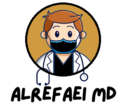Standing out is a deep-rooted instinct in human nature, driving us to distinguish ourselves from others throughout history. This desire has led to remarkable achievements—advancing science, building empires, and creating art that shapes civilizations—while also fueling wars, oppression, and destruction. It’s a force that can be wielded for both good and bad, but when channeled positively, it can inspire greatness and push us to become the best versions of ourselves.
I can’t claim to know how someone can achieve greatness in every field or conquer every challenge, but one thing I’ve been deeply involved in for the past seven years is medical school, and I hope I have something valuable to share. This is especially relevant as the number of medical graduates continues to outpace the available residency positions, creating intense competition. In an increasingly polarized world, where the gap between poorer and richer nations only widens, standing out in medicine is not just about personal success—it’s about navigating a complex system that often reflects the inequalities of our time. Below are five strategies I’ve learned through experience that I hope can help you thrive as a medical student.
1. Listen and Surround Yourself with Senior Students, Residents, Attendings, Specialists, and Academics: Immersing yourself in conversations with those ahead of you in their careers can expose you to the challenges of medicine early on. This not only helps you mature faster and gather valuable insights, but it also allows you to build essential connections. It’s almost like a cheat code—you gain a clear picture of what to expect post-graduation while still having two or three years left to prepare yourself. You can do this through social media, attending conferences, participating in volunteering activities, and other networking opportunities.
2. Learn Research Skills Early, Including AI in Research: Developing research skills early on, especially incorporating AI tools, is a game-changer. Approaching busy academics or clinicians to join a research project or initiate your own is challenging, but by honing your abilities in reading research, writing, analysis, and more, you’ll stand out and bring something valuable to the table. Demonstrating these skills builds trust and encourages them to invest in you, setting you apart from others. The earlier you start, the better equipped you’ll be to make a meaningful impact. I began exploring this world in 2019, about 3.5 years before graduating, and by the age of 25, I had achieved 14 publications—all while studying in a developing nation with limited research funding. Some brilliant colleagues have managed to do the same by taking initiative and building their value first.
3. Plan Your Residency Destination in the Year Before Your Final Year: Begin planning your residency destination the year before your final year of medical school, even though life can be flexible and things might change. Pick a destination and start preparing for it, whether that means tackling board exams or learning a new language. This early preparation will give you a head start if it turns out to be your final choice. And if not, the hard work won’t go to waste. For example, someone who prepared for the USMLE but later switched to the PLAB exam will still benefit from the depth of knowledge gained. Likewise, if you learned German and didn’t end up using it for your career, at least you’ll be ready to navigate a Bundesliga match or impress friends with your pronunciation of “Donaudampfschifffahrtsg esellschaftskapitän”! The skills you gain are lifelong assets, no matter where you end up.
4. Find Peace with Your Digital Life by Minimizing It: In a world overwhelmed by constant notifications and digital distractions, finding peace begins with minimizing your digital life and focusing on the present moment. As Cal Newport discusses in Digital Minimalism and Adam Alter explores in Irresistible, technology can be addictive, pulling us away from the meaningful aspects of life. By cutting down on screen time and consciously living in the moment, you can reclaim your attention and live more intentionally. In my personal experience, this brought me peace, relaxation, and a greater awareness of time as it passed. I became more productive, experienced fewer comparisons, and gained the freedom to explore my passions and interests outside of medicine.
5. Admit Your Weaknesses and Aim to Correct Them: One of the most important steps to growth is acknowledging your weaknesses and taking active steps to address them. For example, many students struggle with English fluency but put off improving it until they graduate, only to realize that even non-English-speaking regions, such as the Gulf, require English proficiency exams. On top of that, residency interviews are often conducted in English. Regardless of your achievements and skills, if the medium of communication is lost, a lot is lost. Admitting these weaknesses can be difficult, but it’s the first step toward overcoming them and removing obstacles from your path. The earlier you address them, the better, but it’s never too late to start.
In the end, standing out in medicine—or in any field—isn’t about mastering everything overnight, but about consciously making choices that set you apart over time. It’s about listening, learning, and adapting, all while keeping your eyes on both the present and the future. By surrounding yourself with the right people, honing your research skills early, and preparing for your next steps well before graduation, you build a foundation that not only helps you succeed but also shapes you into a well-rounded individual. Balancing this with a mindful approach to your digital life brings a sense of peace and focus, allowing you to explore your passions beyond the confines of your studies. Admitting your weaknesses and committing to addressing them only further clears the way for success—because ultimately, it’s not just about how much you know or how many accomplishments you have, but about how effectively you communicate and connect with the world around you.
The path to standing out is long, but it’s filled with opportunities for growth, learning, and the chance to become the best version of yourself—both as a medical professional and as a person. I’m on this journey just like many of you, and through my blog posts, I hope to share my own updates, insights, and progress while also hearing about yours. So embrace the journey, stay curious, and remember that standing out isn’t just about the destination—it’s about how you rise to the challenges and evolve along the way.



